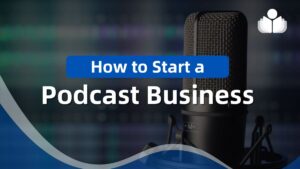© Copyright Carter McNamara, MBA, PhD, Authenticity Consulting, LLC.
Learning is Ultimately the Learner’s Responsibility
Regardless of the situation, learning is ultimately the individual’s responsibility. Learning will not succeed unless the individual feels a strong sense of ownership and responsibility in the process itself. The best forms of learning involve the complete individual, including his or her approach to personal organization and wellness.
To Learn, You Must Be Willing to Grow, Experience
Learning often involves new skills, and developing new behaviors. After many years of classroom education, it’s easy for us to take a course where all we must do is attend each meeting, take notes, and pass tests — and call this learning. One can complete a Masters in Business Administration (MBA), but unless they’re willing to actually apply new information, they’ll most likely end up with an office full of unreferenced textbooks and a head full of data, but little knowledge and wisdom. For the learning process to succeed, the individual must be willing to take risks. Stick your neck out, including by telling the instructor when you’re confused or disappointed in the course. Don’t wait until the course is over when nothing can be done about it.
Growth Involves the Entire Learner
If learning is to be more than collecting new information, then we must involve ourselves completely in our learning experiences. Unfortunately, too many development programs still operate from the assumption that the learner can somehow separate personal development from professional development. So we end up getting a great deal of information about finance and sales, but little help with stress and time management. Then, after schooling, when we enter the hectic world of management, we struggle to keep perspective and we’re plagued with self-doubts. True learning involves looking at every aspect of our lives, not just what’s in our heads. So include courses, e.g., in Stress Management and Emotional Intelligence, in your training and development plans.
Growth Requires Seeking Ongoing Feedback
Many of us don’t know what we need to learn — we don’t know what we don’t know. Therefore, feedback from others is critical to understanding ourselves and our jobs. Feedback is useful in more ways than telling us what we don’t know. Feedback also deepens and enriches what we do know. Research indicates that adults learn new information and methods best when they:
- a) actually apply the information and methods, and
- b) exchange feedback around those experiences.
However, we’re often reluctant to seek advice and impressions from others, particularly fellow workers. We’re sometimes reluctant to share feedback with others, as well. The Giving and Receiving Feedback might be useful to you.
The courage to overcome our reluctance and fears is often the first step toward achieving true meaning in our lives and our jobs.
Growth Involves Realistic Expectations
There is a vast amount of management literature today, much of it asserting the need for substantial and continued change. We’re expected to achieve total quality and total integrity. We’re encouraged to transform ourselves and our organizations. Courses and workshops promise a wide range of outcomes and useful skills. It’s easy in today’s hectic and frustrating world to want a course or workshop to take care of all of our problems. True development is a process, more than an outcome. Many of us want to measure our growth along the way by setting objectives to accomplish. We must ensure these objectives are realistic — or we’re faced with despair and cynicism about our work and learning.
Trust Your Instincts to Learn
Learning doesn’t come only from other people telling you what you need to know and how you need to learn it! The highly motivated, self-directed learner can make a “classroom of life”. Everything becomes an experience from which to learn. You can design your own learning experiences! Think about what you want to learn, how you might learn it, and how you’ll know if you’ve learned it. You can get a great deal from this Free Management Library. For example, take a half hour a week to review materials in the library. You’ll get a strong (free) sense of management. Glance at topics in the Personal Development topic, including, for example:
- Self-Assessments (numerous self-assessments)
- Goals – Setting Personal Goals
- Changing Your Behavior
- Learner’s Basic Requirements for Effective Learning
- Learning Style Inventory
.
Also, consider
Related Library Topics
Learn More in the Library’s Blogs Related to Learner’s Role in Training and Development
In addition to the articles on this current page, also see the following blogs that have posts related to this topic. Scan down the blog’s page to see various posts. Also, see the section “Recent Blog Posts” in the sidebar of the blog or click on “Next” near the bottom of a post in the blog. The blog also links to numerous free related resources.
- Library’s Career Management Blog
- Library’s Human Resources Blog
- Library’s Leadership Blog
- Library’s Supervision Blog
- Library’s Training and Development Blog
Go to main Training and Development page.
For the Category of Training and Development:
To round out your knowledge of this Library topic, you may want to review some related topics, available from the link below. Each of the related topics includes free, online resources.
Also, scan the Recommended Books listed below. They have been selected for their relevance and highly practical nature.
 Sections of this topic
Sections of this topic
















